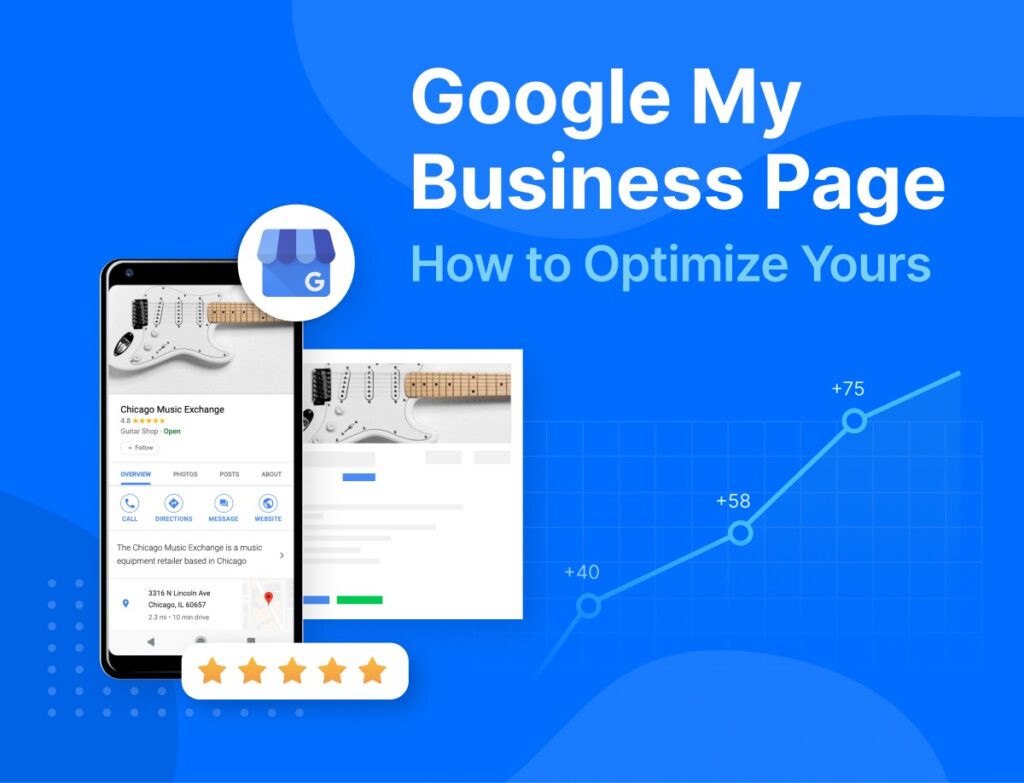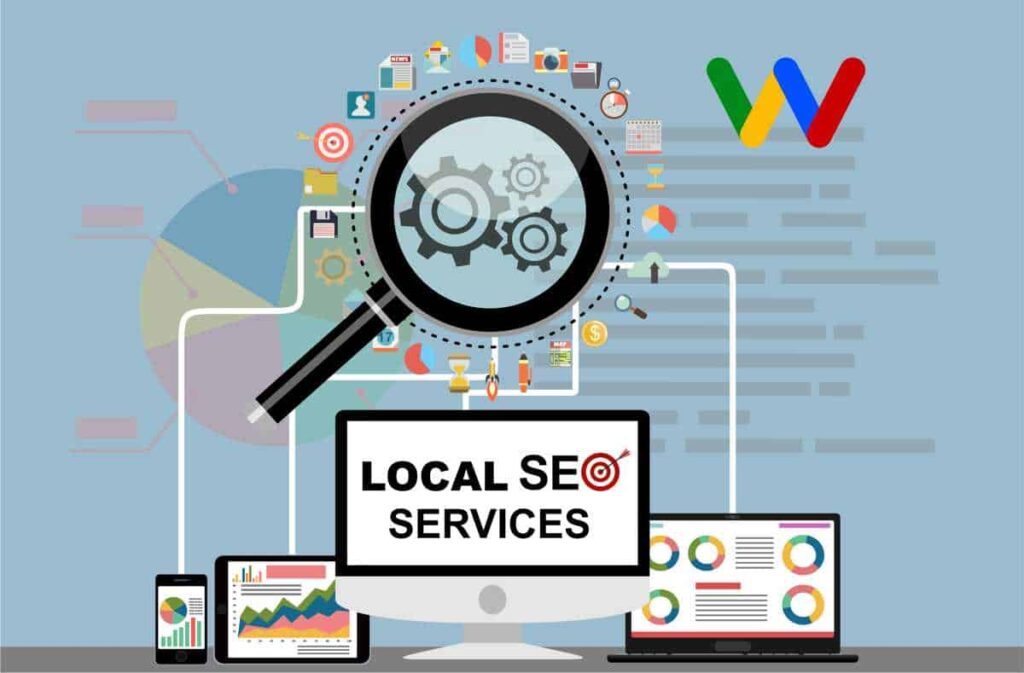In today’s digital landscape, local search engine optimization (SEO) plays a vital role in helping small businesses gain visibility in their local communities. By optimizing your website for local SEO, you can attract more potential customers who are actively searching for the products or services you offer. In this comprehensive guide, we will explore effective strategies to enhance your website’s local SEO presence. Let’s dive in and discover how to boost your online visibility and attract local customers.
Understanding the Importance of Local SEO

In this section, we will delve into the significance of local SEO for small businesses and explore how it can have a profound impact on your online visibility and customer acquisition. Understanding the importance of local SEO will highlight why optimizing your website for local searches is crucial for the success of your small business.
Enhanced Online Visibility:
Local SEO helps small businesses improve their visibility in local search results. When users search for products or services in their vicinity, search engines like Google aim to deliver the most relevant and geographically targeted results. By implementing local SEO strategies, you increase the likelihood of your business appearing prominently in these local search results. This increased visibility can result in higher organic traffic to your website and more exposure for your brand among potential customers in your area.
Targeted Local Traffic:
Local SEO allows you to target specific geographical areas where your business operates. By incorporating location-specific keywords and optimizing your content, you can attract local customers actively seeking the products or services you offer. This targeted traffic is more likely to convert into actual customers as they are already in close proximity to your business. By reaching the right audience at the right time, local SEO helps drive relevant traffic to your website, leading to higher conversion rates and increased sales opportunities.
Competing with Larger Businesses:
For small businesses, competing with larger, national or international companies can be challenging. However, local SEO levels the playing field by focusing on localized searches. By optimizing your website for local keywords and incorporating location-specific information, you can establish a strong online presence within your target market. When potential customers search for businesses like yours in their area, your optimized website and local SEO efforts allow you to stand out from the competition and increase your chances of capturing their attention and patronage.
Trust and Credibility:
A well-optimized website with a strong local SEO presence helps build trust and credibility among potential customers. When your business appears in local search results, it sends a signal that you are a legitimate and trustworthy entity in the local community. Optimizing your Google My Business profile, gathering positive online reviews, and being present in local directories and listings contribute to enhancing your reputation. Establishing trust and credibility through local SEO encourages potential customers to choose your business over competitors, resulting in increased customer acquisition and loyalty.
Mobile and Voice Search Optimization:
With the increasing use of mobile devices and voice assistants, local searches have become even more prevalent. People often search for nearby businesses while on the go or by using voice commands. Local SEO ensures that your website is optimized for mobile devices, providing a seamless user experience and improving your chances of appearing in local search results conducted via voice commands.
Conducting Local Keyword Research

To effectively optimize your website for local SEO, conducting thorough keyword research is crucial. Identifying the right keywords for your business allows you to understand what terms your potential customers are using when searching for products or services in your local area. Here’s a breakdown of the steps you can take to find the most relevant keywords for your business:
Research Local Search Terms:
Start by brainstorming a list of keywords and phrases that are relevant to your business and include location-specific modifiers. For example, if you own an auto detailing service in Poinciana, FL, you might consider keywords like “auto detailing Kissimmee,” “car detailing services in Poinciana,” or “vehicle detailing near me.” These location-specific terms help target users searching for services in your area.
Use Keyword Research Tools:
Utilize keyword research tools such as Google Keyword Planner, Moz Keyword Explorer, SEMrush, or Ahrefs to gain insights into search volume, competition, and related keywords. Enter your initial keyword ideas and analyze the results to discover additional relevant keywords and phrases that are commonly searched by your target audience.
Analyze Competitor Keywords:
Study the websites of your local competitors and analyze their keyword strategies. Tools like SEMrush or Ahrefs allow you to enter competitor URLs and see the keywords they are ranking for. This can provide valuable insights and help you discover new keyword opportunities that you may have overlooked.
Long-Tail Keywords:
Don’t overlook the power of long-tail keywords. These are longer and more specific keyword phrases that have lower search volumes but tend to have higher conversion rates. For example, instead of targeting a broad keyword like “auto detailing,” consider targeting a long-tail keyword like “best ceramic coating for cars in Los Angeles.” Long-tail keywords often indicate more focused intent and can attract highly motivated customers who are closer to making a purchase.
Consider Searcher Intent:
Put yourself in the shoes of your potential customers and consider the intent behind their searches. Are they looking for information, seeking a specific service, or ready to make a purchase? Understanding the searcher’s intent helps you choose the right keywords and create content that aligns with their needs.
User-Friendly Language:
Opt for keywords and phrases that align with the language your target audience uses. Consider using colloquial terms, industry-specific jargon, or popular phrases that resonate with your local customers. This approach helps ensure that your content feels authentic and relatable to your audience.
Monitor and Refine:
Keyword research is an ongoing process. Continuously monitor your website’s performance using analytics tools like Google Analytics or Jetpack Stats. Pay attention to which keywords are driving the most organic traffic and conversions. Adjust your keyword strategy accordingly, adding new keywords, and optimizing existing content to improve your local SEO performance.
By conducting keyword research, you can optimize your website for the right keywords and phrases that align with your business. This will help you target local customers, and increase your chances of ranking higher in local search results. Remember to regularly review and update your keyword strategy to stay competitive and relevant in your local market.
Optimizing On-Page Elements for Local SEO

In this section, our focus will be on optimizing various on-page elements of your website to enhance its local SEO performance. On-page optimization involves making strategic changes to your website’s content, structure, and HTML elements to improve its visibility in local search results. By implementing the following strategies, you can enhance your website’s local SEO presence:
Title Tags and Meta Descriptions:
Title tags and meta descriptions are HTML elements that provide concise summaries of your web pages to search engines and users. Optimize your title tags by incorporating your primary keyword “local SEO services” along with location-specific terms to attract local searchers. Craft compelling meta descriptions that accurately describe your page content and entice users to click through to your website.
URL Structure:
Incorporate location-specific keywords into your website’s URL structure. For example, if you provide Web design services in Kissimmee, FL, consider a URL like “Lwam.co/kissimmee-web-design“. This approach helps search engines understand the geographical relevance of your page and improves its visibility for local searches.
Heading Tags:
Properly structure your content using heading tags (H1, H2, H3, etc.). These tags not only make your content more readable for users but also help search engines understand the hierarchical structure and importance of your content. Include some subheadings that incorporate your primary keyword “local SEO services” to emphasize its relevance.
Content Optimization:
Create high-quality, informative, and engaging content that is optimized for local SEO. Incorporate your primary keyword and relevant location-specific keywords naturally throughout the content. Avoid keyword stuffing and focus on providing valuable information that meets the needs of your target audience. Include localized information such as local landmarks, neighborhoods, or city-specific details to establish relevance.
Image Optimization:
Optimize images on your website by using descriptive file names and adding alt tags. Incorporate location-specific keywords where relevant. Properly optimized images improve the overall user experience and can appear in image search results, potentially driving additional traffic to your website.
Internal Linking:
Utilize internal linking to connect relevant pages on your website. Link from relevant content to other related pages, including location-specific landing pages, service pages, or blog posts. Internal linking helps search engines understand the structure of your website and improves the flow of link equity throughout your site.
Schema Markup:
Implement schema markup on your website to provide search engines with additional structured data about your business. Utilize LocalBusiness schema to highlight essential details such as your business name, address, phone number, opening hours, and customer reviews. Schema markup enhances the visibility of your business in local search results and increases the chances of attracting potential customers.
By optimizing these on-page elements, you can improve your website’s local SEO performance and increase its visibility in local search results. Remember to focus on providing valuable, relevant content that aligns with the intent of local searchers. Regularly monitor your website’s performance, make data-driven adjustments, and continue refining your on-page optimization strategies to achieve long-term local SEO success.
Optimizing Google My Business (GMB) Profile

Your Google My Business (GMB) profile is a crucial tool for local SEO, as it allows you to provide key information about your business directly to Google. Optimizing your GMB profile effectively can significantly enhance your online visibility and increase your chances of appearing in local search results. Here are the steps to optimize your GMB profile:
Claim and Verify Your Business:
Start by claiming your business on Google My Business if you haven’t already done so. Follow the verification process to confirm that you are the legitimate owner or representative of the business. Verification options include receiving a postcard by mail, a phone call, or email verification, depending on your location and eligibility.
Complete Your Business Information:
Provide accurate and detailed information about your business. Include your business name, address, phone number (NAP), website URL, and hours of operation. Ensure that this information is consistent with what appears on your website and other online directories.
Select the Right Categories:
Choose relevant categories that accurately represent your business. Google provides a wide range of categories to choose from. Select the primary category that best describes your business and add additional secondary categories if applicable.
Craft a Compelling Business Description:
Write a concise yet informative business description. Highlight your unique selling points, services offered, and what sets your business apart from competitors. Incorporate relevant keywords naturally within the description, including your primary keyword “local SEO services.”
Gather and Respond to Reviews:
Encourage your customers to leave reviews on your GMB profile. Positive reviews not only enhance your credibility but also influence potential customers’ decisions. Respond promptly and professionally to both positive and negative reviews to show that you value customer feedback and are committed to providing excellent service.
Enable Messaging and Q&A:
Enable the messaging feature on your GMB profile to allow customers to communicate with you directly. Respond to inquiries promptly to improve customer engagement. Additionally, monitor and answer any questions posted in the Q&A section of your profile to provide accurate information and engage with potential customers.
Monitor Insights and Analytics:
Regularly review the insights and analytics provided by your GMB profile. Understand how users are finding and interacting with your business listing, such as the number of views, clicks, and phone calls generated. Analyze this data to gain insights into user behavior and make informed decisions to optimize your GMB profile further.
By following these steps and optimizing your GMB profile effectively, you can enhance your local SEO presence and improve your chances of attracting more local customers. A well-optimized GMB profile increases your visibility in Google’s local search results, helps you stand out from competitors, and boosts your credibility among potential customers. Continuously monitor and update your GMB profile to ensure that it accurately reflects your business and engages with your target audience effectively.
Working with a Local SEO Expert

Sometimes, the multitude of tasks involved in creating a well-optimized website for local SEO can feel overwhelming. Fortunately, there are companies like Libra Web and Marketing that specialize in local SEO services and can assist you in streamlining your efforts, saving both time and money.
Expertise and Knowledge:
Companies like Libra Web and Marketing have a team of professionals with expertise in local SEO. They stay updated with the latest trends, algorithms, and best practices in the field. Their knowledge and experience can help you navigate the complexities of local SEO and ensure that your website is optimized effectively.
Customized Strategies:
A reputable local SEO company will assess your specific business needs, target market, and competition to create customized strategies tailored to your requirements. They will conduct thorough research, identify relevant keywords, optimize your website’s on-page elements, and implement off-page tactics to enhance your local SEO performance. By working with professionals who understand the intricacies of local SEO, you can achieve better results and save time compared to attempting to do it all on your own.
Time-Saving:
Implementing local SEO strategies requires significant time and effort. From conducting keyword research and optimizing content to managing online directories and building local citations, the tasks can quickly add up. By outsourcing these responsibilities to a company like Libra Web and Marketing, you can free up your time to focus on other aspects of running your business. The company’s expertise and resources allow them to efficiently handle the intricacies of local SEO while you concentrate on core business operations.
Cost-Effective Approach:
While hiring a local SEO company involves an investment, it can prove to be cost-effective in the long run. Instead of allocating resources and personnel to handle local SEO in-house, which may require training and ongoing education, outsourcing to a specialized company eliminates the need for such expenditures. Additionally, the expertise and industry knowledge of a local SEO company can lead to better results, ultimately generating more leads and revenue for your business.
Ongoing Monitoring and Adaptation:
Local SEO is not a one-time task; it requires continuous monitoring and adaptation to stay competitive in search engine rankings. A professional local SEO company will regularly track the performance of your website, analyze data, and make necessary adjustments to optimize results. This ongoing management ensures that your local SEO efforts remain effective and aligned with the evolving search landscape.
Working with a reputable company like Libra Web and Marketing can alleviate the stress and complexity of local SEO, allowing you to leverage their expertise, save time, and focus on your core business operations. By partnering with professionals who understand the nuances of local SEO, you can optimize your website for improved visibility, increased traffic, and ultimately, higher customer acquisition rates.
Conclusion:
By implementing the strategies outlined in this guide, you can optimize your website for local SEO and attract more local customers to your small business. Remember to conduct thorough keyword research, optimize your on-page elements, create location-specific landing pages, optimize your Google My Business profile, build local citations, focus on mobile optimization, and engage in local link building. Stay consistent, monitor your progress, and adapt your strategies as needed to ensure long-term local SEO success. Start implementing these tactics today and watch your website climb the local search rankings, driving more traffic and revenue for your small business.
Ready to take your small business marketing to the next level? Trust the experts at Libra Web and Marketing Solutions to help you achieve your goals. Whether you need assistance with SEO, PPC advertising, web design, or social media marketing, our team has the knowledge and expertise to drive results. Contact us today to schedule a consultation and let us tailor a marketing strategy that suits your business needs. Together, let’s unlock the potential of your small business and watch it thrive in the digital landscape. Visit Lwam.co for more information.

